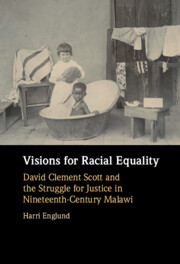 Visions for Racial Equality
Visions for Racial Equality Book contents
- Visions for Racial Equality
- Visions for Racial Equality
- Copyright page
- Contents
- Figures
- Maps
- Preface and Acknowledgements
- Maps
- 1 Introduction
- 2 Among the Wild Scotsmen
- 3 Champagne and Slaves
- 4 The Universal Vernacular
- 5 Frightful Libel upon Humanity
- 6 Rhodes Must Not Rise
- 7 A Future Foreclosed
- 8 Grief Never Wears Out
- 9 Liberal Translations
- 10 The Rest Is History
- Bibliography
- Index
7 - A Future Foreclosed
Published online by Cambridge University Press: 10 February 2022
- Visions for Racial Equality
- Visions for Racial Equality
- Copyright page
- Contents
- Figures
- Maps
- Preface and Acknowledgements
- Maps
- 1 Introduction
- 2 Among the Wild Scotsmen
- 3 Champagne and Slaves
- 4 The Universal Vernacular
- 5 Frightful Libel upon Humanity
- 6 Rhodes Must Not Rise
- 7 A Future Foreclosed
- 8 Grief Never Wears Out
- 9 Liberal Translations
- 10 The Rest Is History
- Bibliography
- Index
Summary
Scott’s vision for the interracial African Church came to flourish in the 1890s. It did so with certain un-Protestant aspects of liturgy and with the establishment of an African deaconate. Life at the Mission also saw experiments in gender and race relations as girls’ education was encouraged while African women were introduced to income-generating activities of their own. Scott also sparked controversy in Scotland for allowing unmarried White women to work with an African man in a new mission station. Scott also arranged visits by Africans to Britain. Some of the Mission’s African stalwarts assumed responsibilities before their baptism, while conversion could wait as Scott pursued his own learning. The African deacons combined practical and evangelical work and ran a court with Scott on the model of the mlandu deliberations in villages. Attacks on Scott’s vision began to mount from both the Church of Scotland and White settlers. They took issue with the Mission’s finances, Scott’s alleged high-churchism and his trust in Africans’ capabilities. A Committee of Inquiry was formed in 1897 to investigate these claims. Although it largely exonerated Scott, the attacks had taken their toll on him.
- Type
- Chapter
- Information
- Visions for Racial EqualityDavid Clement Scott and the Struggle for Justice in Nineteenth-Century Malawi, pp. 163 - 200Publisher: Cambridge University PressPrint publication year: 2022


